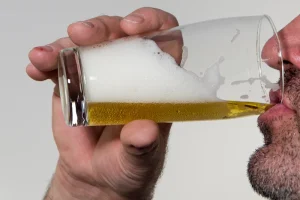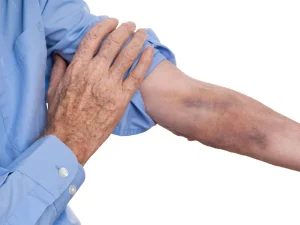10 Myths About Drug Addiction That People Need to Stop Believing
Category : Sober living

Understanding addiction as a universal issue fosters compassion and encourages society to support individuals seeking help, regardless of their background. These factors collectively illustrate that addiction is not simply a choice, but rather a complex interplay of various influences that can affect anyone, regardless of their background. Understanding these elements can foster better empathy and support for those facing addiction issues. Addiction is a chronic brain disorder characterized by compulsive drug seeking, despite harmful consequences. It affects brain function and behavior, which shows that it is not merely a matter of choice. When it comes to trauma, many misconceptions can myths about addiction and recovery hinder effective treatment and recovery.
- By understanding the fantasies compared to truths, people can travel through this journey with knowledge and power.
- If you’re a veteran struggling with alcohol or drug addiction, our Veteran Advocates can help you navigate your VA health insurance and get you the help you need.
- All of these misconceptions keep women stuck in a cycle of shame and addiction.
- There’s a common misconception that someone who lives through a traumatic event will always develop PTSD.
These six misconceptions keep women stuck in a cycle of shame and addiction.

Our work in the 1970s discovered where in the brain heroin acts, what changes are produced, how addiction and withdrawal occur, and how it could be reversed with medicines. This work made it clear that detoxification was understandable and treatable. Mark Twain said, “Giving up smoking is the easiest thing in the world. I know because I’ve done it thousands of times.” Addiction changes the brain, making quitting difficult. Nora Volkow, head of the National Institute on Drug Abuse, and other experts have argued that free will is lost with addiction because the addict needs drugs like others need food and water.
Overcoming Life’s Challenges
- You might not want to accept a friend’s invitation to head out to a club, or you might skip going to a house party where you know drugs will be present.
- Trauma occurs when we are unable to return to a state of equilibrium after the threat has passed, leaving us in a prolonged state of stress or fear.
- Addiction recovery addresses your physical, mental and emotional needs, and that requires effort.
- Contact us today to find out which program might be right for you, or to begin the process of arranging for treatment.
- Safe medical treatments have changed alcohol use disorder (AUD), diminishing alcohol cravings and preventing relapse with disulfiram, acamprosate, and naltrexone.
It just isn’t always helpful to share overwhelming experiences without being offered tools and support that help you heal. Dual diagnosis treatment programs aim to address both the addiction and the underlying mental health condition simultaneously. They employ a multidisciplinary approach, including individual therapy, group therapy, medication management, and holistic therapies. By treating both conditions concurrently, individuals have a better chance of achieving long-term recovery and improved mental well-being. Developing co-occurring disorders can be influenced by a combination of genetic and environmental factors.
Dual Diagnosis and the Importance of Addressing Mental Health Issues
- It can also be designed to include your family and support system so they can learn more about what you’ve been dealing with and how to encourage you in your recovery.
- Relapse often occurs when individuals face triggers or underlying issues that have not been adequately addressed.
- However, research indicates that compassionate and kind approaches are typically more effective in promoting positive change in individuals struggling with addiction.
Thankfully, there are several evidenced-based treatments for PTSD that can help people address triggers and symptoms and move beyond their traumatic experience. When someone goes through a traumatic experience, the assumption may be that if they are going to have symptoms of PTSD, the signs will emerge quite quickly after the event. https://ecosoberhouse.com/ However, this is not always the case, and some people may not show symptoms of PTSD for years. Formally, this is known as delayed onset PTSD, and is diagnosed if the condition develops at least 6 months after the traumatic event.

Although most people will experience a traumatic event in their life, it is estimated that just 6.8% of American adults will develop lifelong PTSD after trauma. It’s not entirely clear what predicts whether someone will develop PTSD, but several theories have been put forward as to factors that might increase someone’s vulnerability. For example, rates of PTSD are typically higher among women, people from higher income countries and among people who suffer from comorbid mental health conditions. In this article, we have debunked some of the most common and enduring myths surrounding addiction. By challenging these misconceptions, we aim to foster a greater understanding of addiction as a complex and multifaceted issue, rather than simplifying it as a matter of choice or moral failing.
- Developing co-occurring disorders can be influenced by a combination of genetic and environmental factors.
- Explore the importance of addressing stigmas online and in discussions, and the role of education in spreading accurate information about addiction.
- This has caused misconceptions and judgment from society, leading to shame and fear.
- While detox is an essential first step in the recovery process for many, it is by no means a comprehensive solution to addiction.

